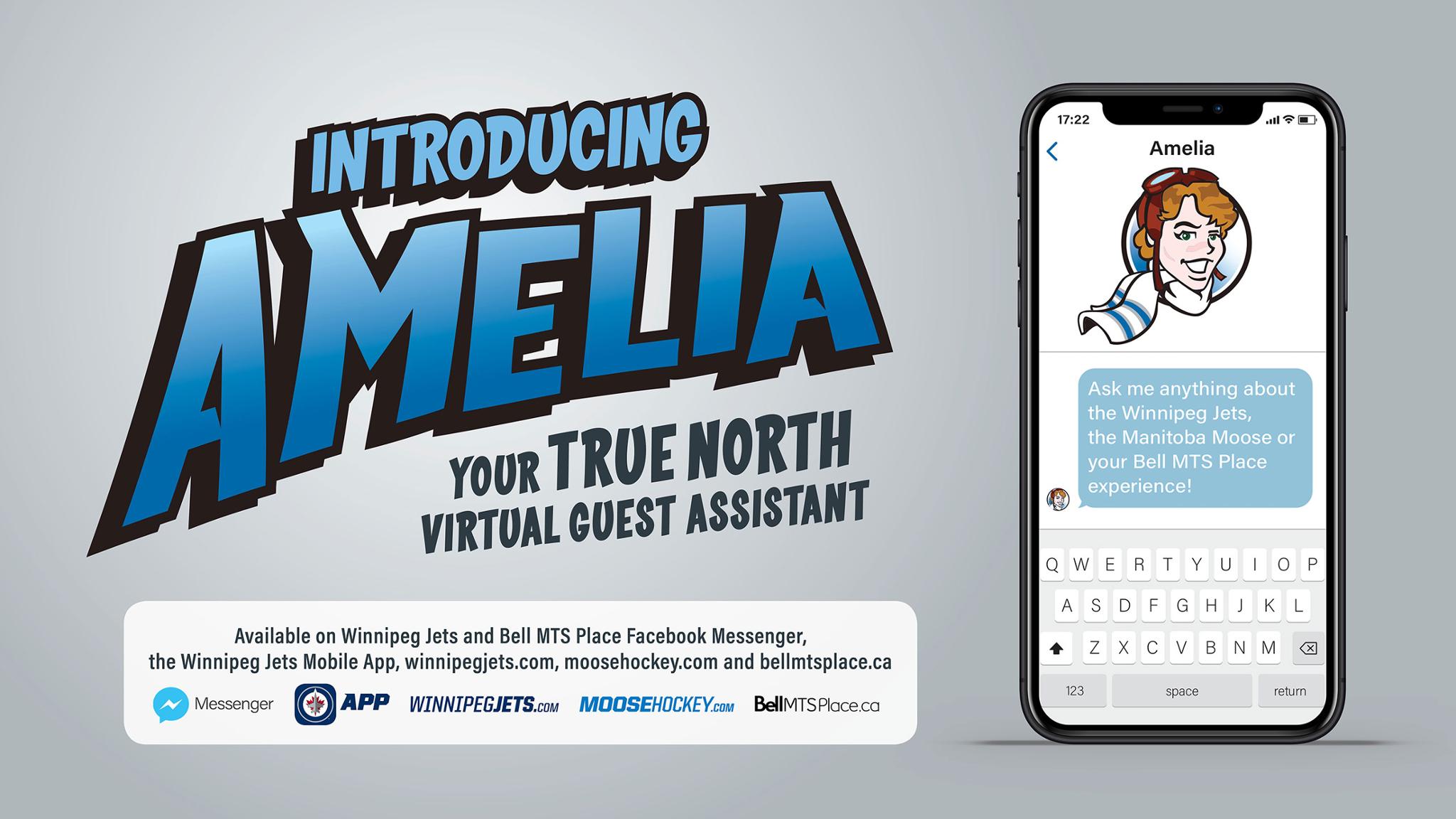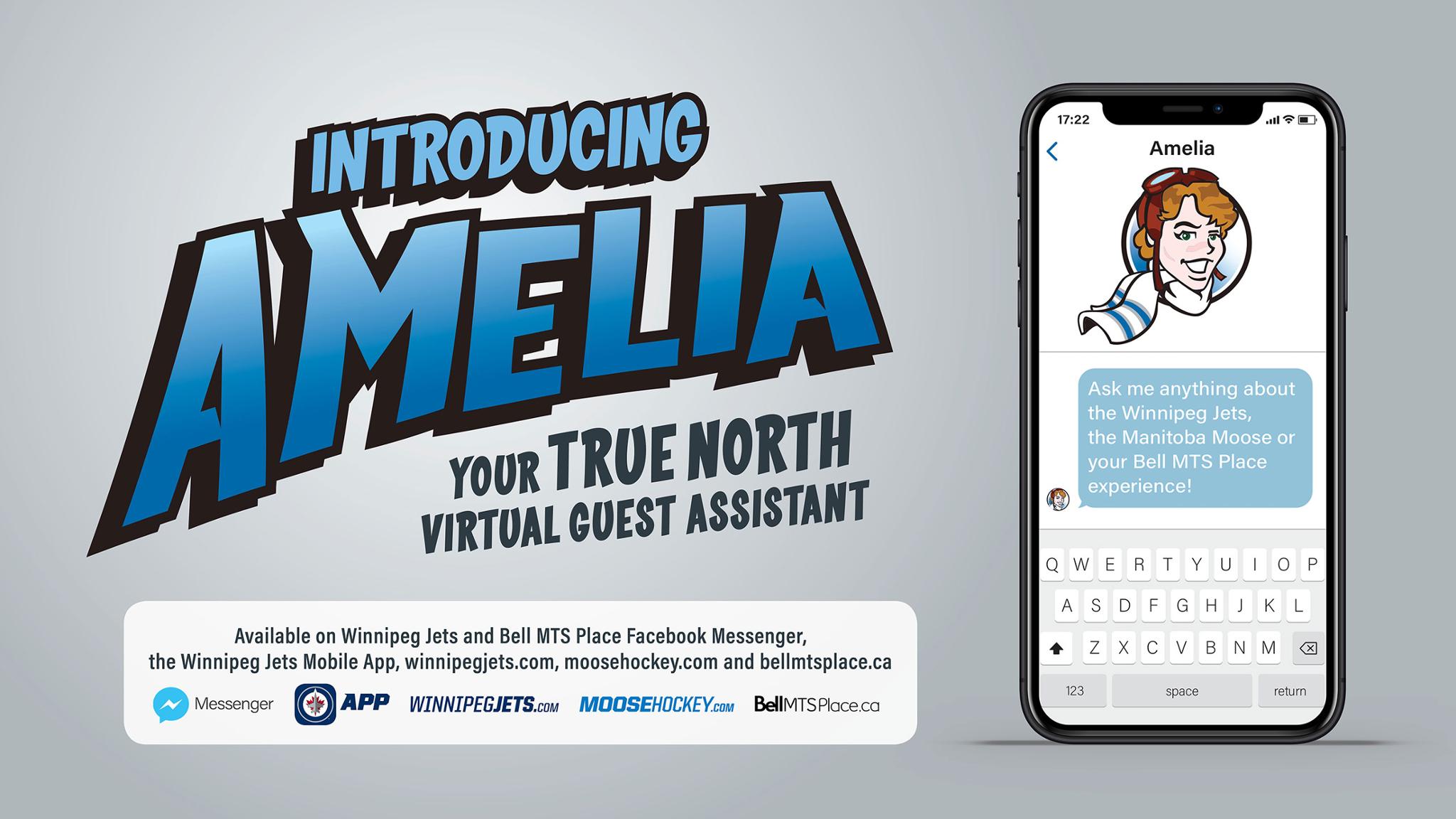
As technology continues to advance and evolve, customer service is likely to improve across all industries, as evidenced by the introduction of a virtual guest services platform by the Winnipeg Jets, Manitoba Moose and their home arena, Bell MTS Place.
The platform, developed by Satisfi Labs, is in use in more than 50 venues across the five major North American sports leagues, but its launch with True North is its first venture into Canada. Satisfi’s program is also in use in the tourism industry in museums, zoos and aquariums. Questions range from ticketing to parking, to services and amenities.
The platform allows guests to interact with the virtual customer service representative through a website, Facebook or app. Questions are answered quickly through Ask Amelia in a developed voice representative of the organization using it. The voice is developed through the general policy answers, but also stat feeds, and softening answers with friendly language, images and GIFs.
For the organization, which hosts 1.5 million guests through NHL, AHL and non-hockey arena events annually, the platform can provide a digital representation of the organization’s best employee, said Andrew Wilkinson, the director of digital at True North Sports and Entertainment, the parent company of the Jets.
“This allows us to be more efficient and consistent in providing real-time responses to our fans across digital brand touch points and takes some strain off internal employees,” Wilkinson said. “We’re continuously learning. It’s still fairly new within the organization, but it’s evolving every day and we’ve been adjusting and adapting responses through feedback from our staff and guests.”
READ MORE: Why Stadium Uses AI-Powered Video Highlights to Reach Fans
The initial build-out of the platform took True North quite a bit of time ensuring answers were in place. The organization did benefit from Satisfi’s collective learning, which as new questions are answered and new information is collected is shared among all the clients.
“As we expand, we offer a great opportunity of well-tested and well-vetted information,” said Courtney Jeffries, Satisfi SVP of sports, entertainment and tourism. “We want to be on trend with the expectation that information is immediately accessible, the experience delivered by the team is customizable, and the end user can really tailor their own experience.”
The collective learning should benefit from the new Canadian market, Jeffries said. The platform also is available in Spanish and French.
“A fan isn’t static,” she said. “There might be a unique way to ask a question in Winnipeg, where there’s not the American version, when you travel. It will enhance the knowledge of the brain, with new questions from a hockey perspective and engages the virtual guest services assistant in a way to teach us to make best practices, not just for hockey, but all arena clients.”
[mc4wp_form id=”8260″]
Having a virtual customer service platform can also help organizations realize a deeper connection to the fan base. Jeffries said there have been a number of clients making business decisions based on feedback garnered from their platform, but pointed to beer tap rotations and gluten-free requests.
Normally, questions might be answered by ticket representatives, a security team or venue customer service, and many of the questions might not lead to a profitable time-spend for the organization.
“Some questions aren’t revenue-generating and could be a sizeable cost to the team,” Jeffries said. “For Satisfi to intercept those questions and alleviate some very serious human capital to solve that and do so reflective in the team’s voice, then it really is a service to the team.”
Part of Wilkinson’s role at True North is to vet potential web, social and mobile-based technology and tools that can help enhance the organization’s operations. He said Satisfi provided a sports and entertainment-specific use of AI, and made sense as a partner.
READ MORE: How the Winnipeg Jets Tell their Story in Midst of Historic Year
He said the suggestions, feedback, and questions coming through the virtual guest services assistant will be taken to heart just as it would to an actual person.
While technology is generally used to help achieve business goals and drive revenue, Wilkinson said the organization is putting a greater emphasis on understanding fans.
“We’re looking at tools that can help us gain a 360-degree view of our fans by linking various data points together in a unified view,” Wilkinson said. “Whether it’s purchase behavior at concessions or at our retail locations; if they follow us on social media, have downloaded our app, or are season ticket holders vs. fans that attend two games a year — we want to better understand our fans to be able to personalize their experience and maximize their value and engagement.
“As we work to continually strengthen our fan base locally and worldwide, it’s vital that we understand fan loyalty behaviors and their participation with our brands at a Jets or Moose game in Winnipeg or from their mobile devices all around the world.”






![[Subscription Customers Only] Jun 15, 2025; Seattle, Washington, USA; Botafogo owner John Textor inside the stadium before the match during a group stage match of the 2025 FIFA Club World Cup at Lumen Field.](https://frontofficesports.com/wp-content/uploads/2026/02/USATSI_26465842_168416386_lowres-scaled.jpg?quality=100&w=1024)
![[Subscription Customers Only] Jul 13, 2025; East Rutherford, New Jersey, USA; Chelsea FC midfielder Cole Palmer (10) celebrates winning the final of the 2025 FIFA Club World Cup at MetLife Stadium](https://frontofficesports.com/wp-content/uploads/2026/02/USATSI_26636703-scaled-e1770932227605.jpg?quality=100&w=1024)









